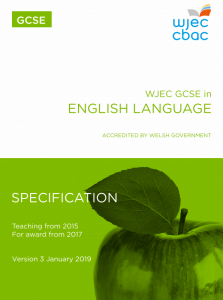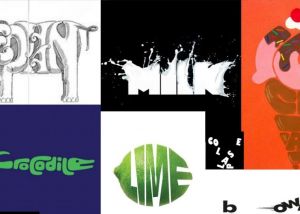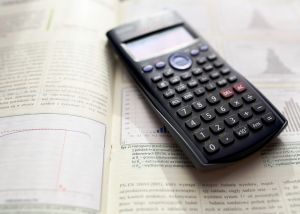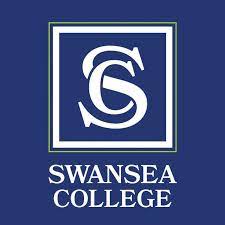Project Description
GCSE English Language Course
Exam board: WJEC
Exam code: 3700QS
Our GCSE English language course focuses primarily on the functional aspects of language.
Oracy, reading and writing skills are life skills and are recognised in GCSE English Language. Students will develop their ability to speak, read and write fluently, appropriately, effectively and critically – for a range of personal, functional and social purposes. Students will learn to respond to a wide range of challenging written texts. The course covers a variety of texts from fiction to letters, reports, articles, reviews and diaries. Students will gain an understanding of the way a writer is influenced by their purpose and audience as well as by what is happening around them.
English Language is compulsory at GCSE.
Curriculum
The specification we follow is the WJEC Syllabus.
Students will study and analyse a range of both fiction and transactional texts and extracts, written for a variety of different audiences and purposes. Students will continue to practise and develop their writing, editing and proof-reading skills through the course.
Oracy skills
Present information and select/organise information and ideas effectively and persuasively, e.g. for a prepared spoken presentation or group discussion.
Demonstrate an understanding of the conventions of spoken language in both formal and informal situations.
Speak accurately and fluently, adapting style and language to a wide range of forms, contexts, audiences and purposes.
Experiment with language and techniques to express opinions, create effects and engage audiences.
Pay appropriate attention to accuracy of syntax and expression; convey experiences, ideas and information clearly, precisely and appropriately.
Use verbal reasoning skills, form independent views and demonstrate effective listening skills by summarising key points, challenging what is heard on the grounds of reason, evidence or argument.
Respond constructively and critically to a wide range of written and digital/dynamic texts, making effective contributions, using creative approaches to exploring issues, solving problems and developing ideas.
Reflect and comment critically on their own and others’ use of language, participate in a range of real-life contexts and adapt talk appropriately to the situation and audience.
Reading skills
Respond, reflect and analyse a wide range of written texts (continuous and non-continuous).
Analyse and respond to texts and their subtexts, using inference and deduction and linking ideas within or across texts.
Demonstrate independence in synthesising and summarising information effectively from a range of texts.
Interpret themes, meaning, ideas and information in a range of texts and challenging writing; reading in different ways for different purposes, and comparing and evaluating the usefulness, relevance and presentation of content.
Support a point of view by referring to evidence within texts; identifying bias and distinguishing between statements that are supported by evidence and those that are not.
Evaluate and reflect on the ways in which texts may be interpreted differently according to the perspective of the reader and distinguishing between facts or evidence and opinions, bias and argument.
Understand and recognise the purpose and reliability of texts, e.g. texts for personal, public, occupational and educational use.
Demonstrate verbal reasoning skills in synthesising and summarising information from a range of texts.
Writing skills
Produce clear and coherent written texts
Write effectively for different purposes and audiences and in different forms, e.g. explain, instruct, recount, inform, discuss, persuade, argue.
Select vocabulary, grammar, form, and structural and organisational features thoughtfully to reflect the audience, purpose and context.
Vary sentence structures to engage and sustain the reader’s interest and write with grammatical accuracy.
Use a full range of punctuation in order to vary pace, clarify meaning, avoid ambiguity and create deliberate effects.
Organise writing in an appropriate form, ensuring content is detailed within and between paragraphs or sections, developing and sustaining ideas coherently.
Use language creatively and with precision. · Use information gleaned from a range of sources to write coherently in different forms.
Write for effect by selecting, organising and emphasising facts, ideas and key points and citing compelling evidence to support views.
Assessment
The qualification is made up of two equally weighted externally assessed units, and one internally assessed unit.
The two externally assessed units test Reading (40%) and Writing skills (40%), whilst the internally assessed unit tests Oracy skills (20%).
This is a linear qualification in which all assessments must be taken at the end of the course. Assessment opportunities will be available in the summer and November series each year
WJEC GCSE English Language: 3700QS
Internal Assessment
Unit 1: The Oracy assessments must be based on:
1. Individual Researched Presentation: One individual, researched presentation, including responses to questions and feedback, based on WJEC set themes.
2. Responding and Interacting: One group discussion to written or visual stimuli provided by WJEC to initiate the discussion
More information can be found here
External Assessments
Unit 2: Description, Narration and Exposition – Reading (20%) and Writing (20%)
Students are tested on their understanding of at least one description, one narration and one exposition text with a thematic link, assessed through a range of structured questions. Furthermore, students will complete one writing task from a choice of two that could be either description, narration or exposition. Students will also need to proofread and correct a brief text.
Unit 3: Argumentation, Persuasion and Instructional – Reading (20%) and Writing (20%)
Exam Access Arrangements
Exam access arrangements allow candidates/learners with special educational needs, disabilities or temporary injuries to access the assessment without changing the demands of the assessment.
For example, readers, scribes and Braille question papers. In this way, Awarding Bodies will comply with the duty of the Equality Act 2010 to make ‘reasonable adjustments’.
We can arrange exam access arrangements and assess you with our special assessor. The deadline for application to the exam board is the February of the year the learner sits exams.
To find out more about exam access arrangements click here
FAQs
SWANSEA COLLEGE GCSE COURSES
Have a question? Ask our virtual assistant on live chat below
or call us on 01792 535000 and speak to our experienced Student Adviser.





















